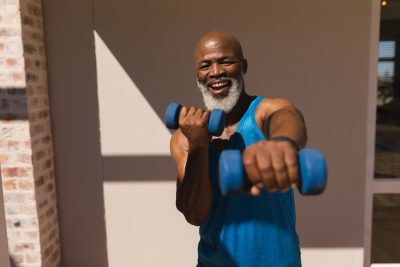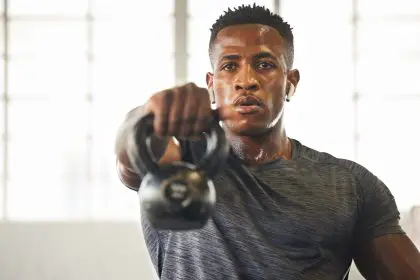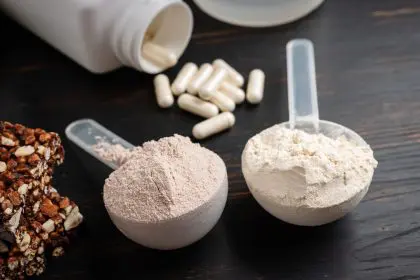We’ve all been there, racing against time to chug down a protein shake within that magical 30-minute post-workout window. For years, fitness enthusiasts have treated this timeframe like a holy grail of gains, believing that missing it would somehow sabotage their hard work. But new research is turning this long-held belief on its head, and what scientists are discovering might actually free you from your post-workout protein panic.
Why we’ve been stressing about protein timing
The concept of the “anabolic window” has been gospel in fitness circles for decades. The idea seems logical enough: your muscles are hungry after a workout, so you need to feed them immediately. This belief has spawned an entire industry of ready-to-drink protein shakes and bars, all marketed as essential post-workout fuel. However, recent research suggests our bodies are much more forgiving than we’ve been led to believe. While protein is indeed crucial for muscle recovery, the process of muscle protein synthesis isn’t operating on such a strict schedule.
What science actually says about muscle recovery
A scientist has found that muscles remain receptive to protein for up to 24 hours after exercise. This revelation is completely changing how we think about post-workout nutrition. Instead of viewing protein timing as a sprint, we should see it more as a marathon. Your total daily protein intake matters more than timing, and muscles remain receptive to protein for a full day after exercise. What’s truly important is maintaining consistent protein consumption throughout the day, focusing on quality protein sources while considering individual factors that might affect your personal needs.
One fascinating aspect often overlooked in the protein timing discussion is its role in immune function. A doctor explains that intense exercise temporarily suppresses our immune system. Protein intake helps signal our body to resume normal immune function, but again, this doesn’t have to happen immediately after exercise. The body’s recovery processes continue long after you’ve left the gym.
Who really needs to watch the clock
While most of us can relax about immediate post-workout protein, certain groups might want to keep paying attention to timing. Professional athletes training multiple times per day, competitive bodybuilders looking for every possible advantage, and menopausal and postmenopausal women needing extra support might benefit from more precise protein timing. Athletes in weight-class sports managing nutrition carefully and individuals training in a fasted state should also consider timing their protein intake more strategically.
A doctor points out that our bodies don’t store amino acids, making regular protein intake throughout the day crucial. This means that your pre-workout meal might be just as important as your post-workout nutrition, and your protein intake at other meals matters significantly. The key is developing sustainable habits that support your fitness goals while fitting into your lifestyle.
Making it work in your daily routine
The most important takeaway isn’t that protein timing doesn’t matter at all, but rather that it’s not as critical as once thought. This knowledge should free you to create more sustainable and enjoyable fitness and nutrition routines. Instead of stressing about the clock, focus on planning balanced meals throughout your day, choosing convenient protein sources you enjoy, and creating sustainable eating patterns that work for your schedule.
Whether you’re a dedicated athlete or a casual gym-goer, understanding these nuances about protein timing can help you make better decisions about your nutrition. Remember, while proper nutrition is crucial for fitness progress, the body is remarkably adaptable. Don’t let perfect be the enemy of good when it comes to your post-workout nutrition. Focus on consistency, quality, and sustainability in your approach to protein intake, and you’ll likely see better results in the long run. The latest research suggests that as long as you’re meeting your daily protein needs through quality sources and maintaining consistent eating patterns, you’re giving your body what it needs to recover and grow stronger.














